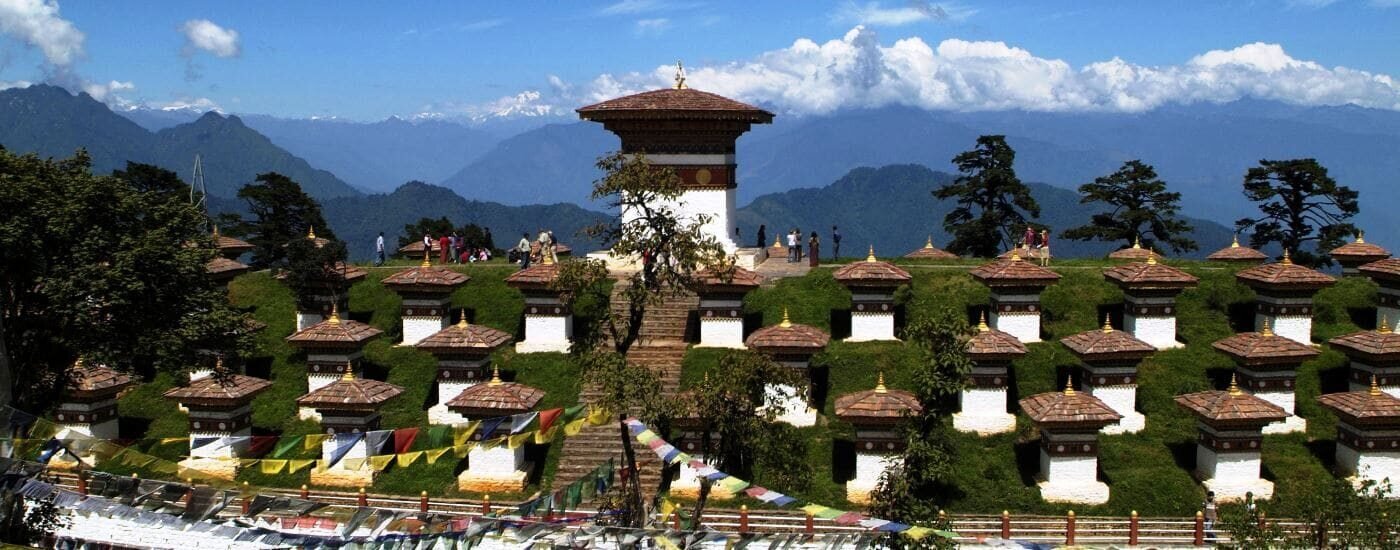

| Full Country Name | Kingdom of Bhutan (Locally known as Druk or Drukyul) |
|---|---|
| Area | 47,000 sq. km (18,200 sq. mi.) |
| Population | 779,898 (as of September 2021) |
| Capital City | Thimphu (Altitude: 2200m) |
| Languages | Dzongkha (official), English, Sharchopkha, Nepali |
| Religion | Himalayan Buddhism (75%), Hinduism (20%), Others (5%) |
| Government | Constitutional Monarchy |
| King | Jigme Khesar Namgyel Wangchuck |
| Time Zone | GMT +6 |
| Telephone Code | +975 |
Bhutan lies in the eastern Himalayas, sandwiched between China and India.
Gross National Happiness, or GNH, is a holistic and sustainable approach to development, which balances material and non-material values with the conviction that humans want to search for happiness. The objective of GNH is to achieve a balanced development in all the facets of life that are essential for our happiness.
We are in the age of the Anthropocene when the fate of the planet and all life is within the power of mankind. Boundless consumerism, widening socio-economic inequality, and instability are causing rapid natural resource depletion and degradation. Climate change, species extinction, multiple crises, growing insecurity, instability, and conflicts are not only diminishing our well-being but are also threatening our very survival.
Today, it is inconceivable for modern society to function without the business of commerce, finance, industry, or trade. These very factors are altering human destiny by the day in extraordinary ways, both positive and negative. GNH directly addresses such global, national, and individual challenges by pointing to the non-material roots of well-being and offering ways to balance and satisfy the dual needs of the human being within the limits of what nature can provide on a sustainable basis.
The phrase “Gross National Happiness” (GNH) was coined by Bhutan’s fourth Dragon King, Jigme Singye Wangchuck. The phrase was coined as a signal of commitment to building an economy that would serve Bhutan’s culture based on Buddhist spiritual values instead of the western material development that was represented by gross domestic product.
Contact us to plan your journey to the Land of Happiness.
Get in Touch